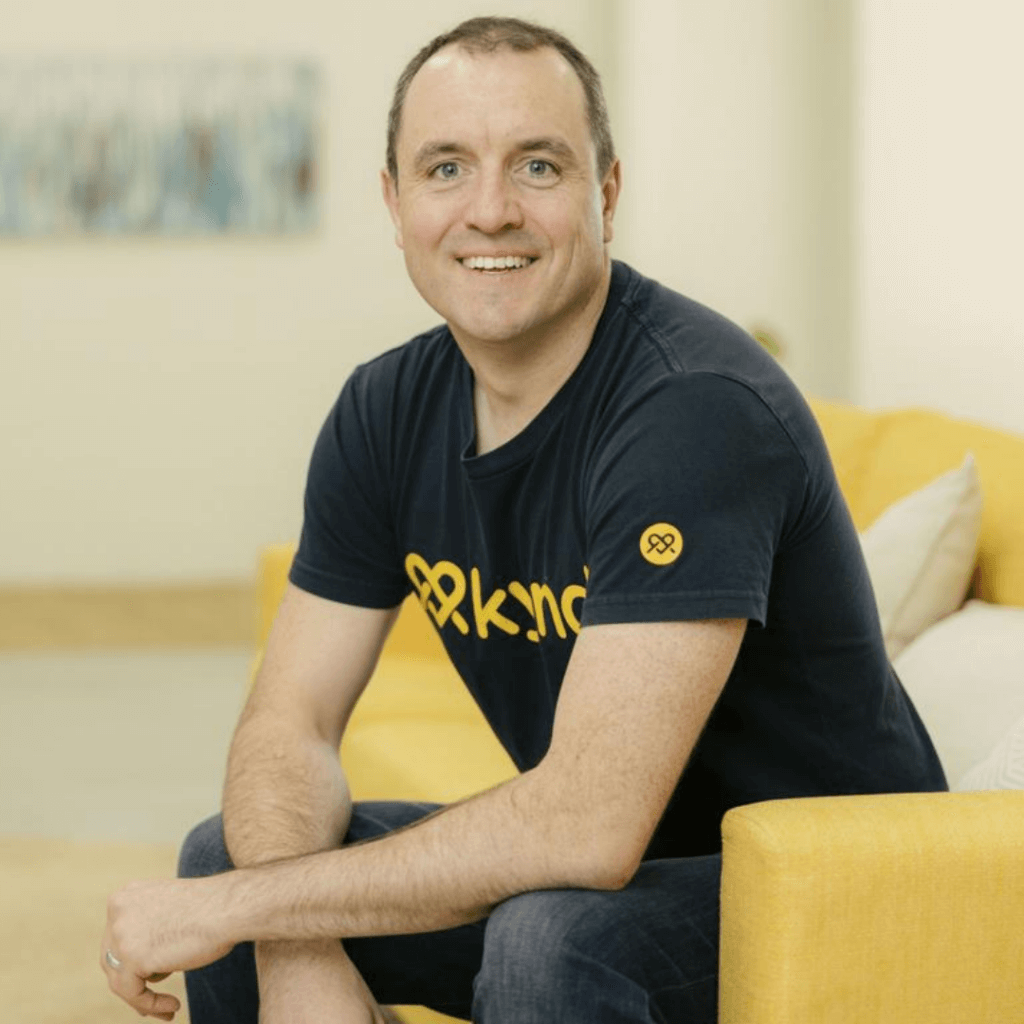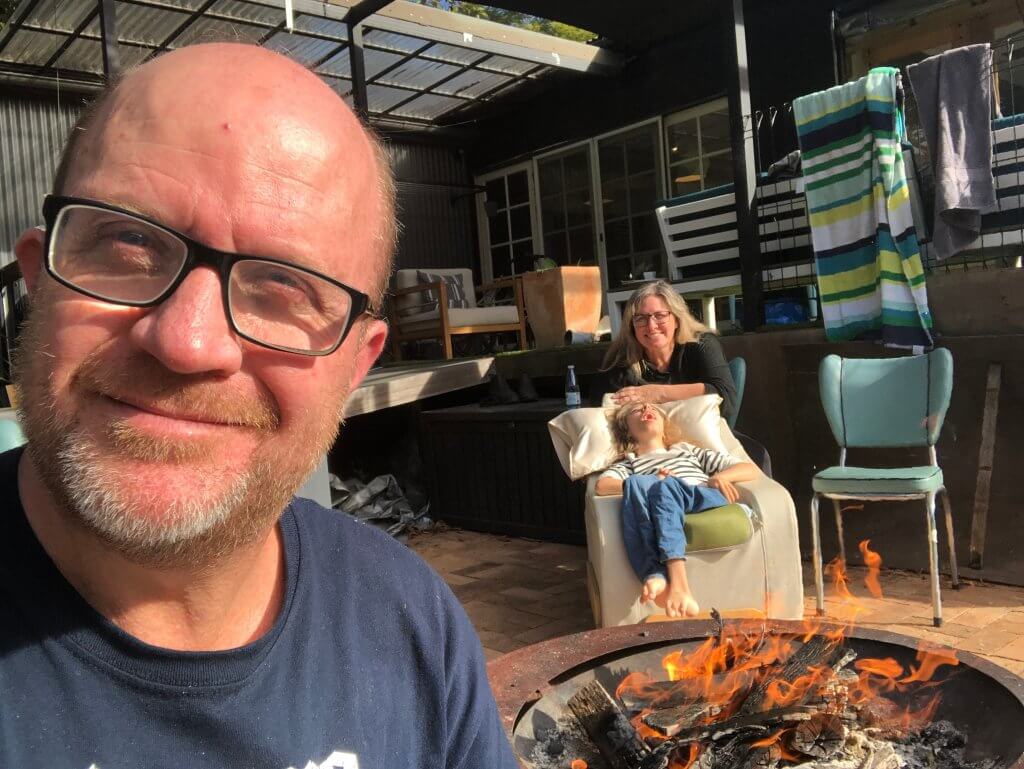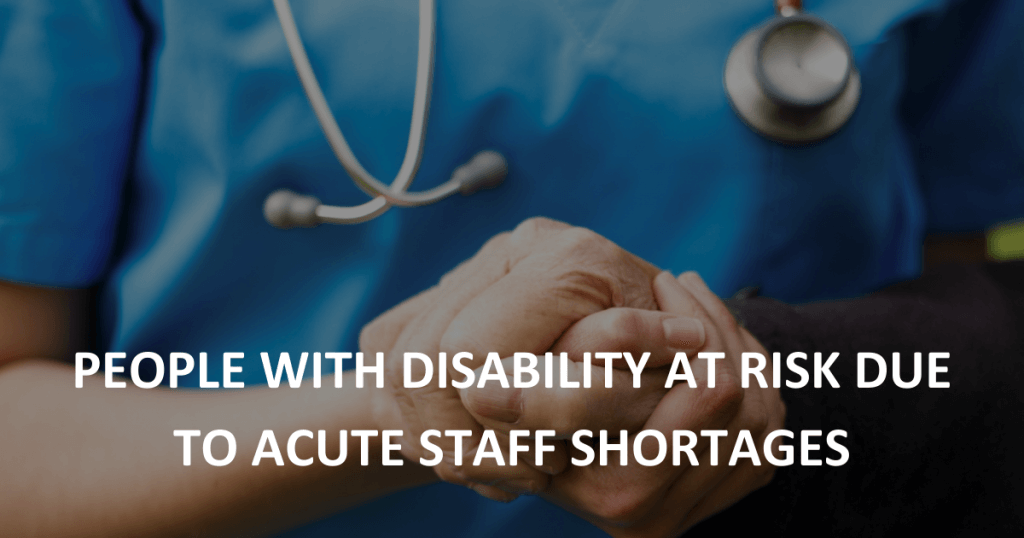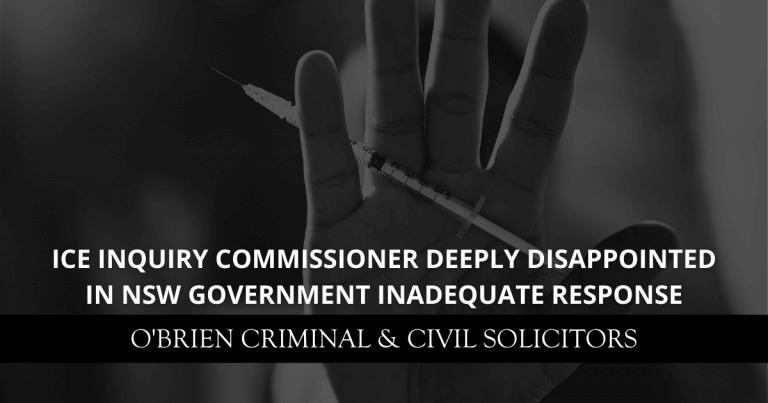Disability support workers around the country are sick or isolating, leading to acute staff shortages across the entire sector.
A lack of resources and inability of the NSW Government to reign in the latest outbreak has caused havoc across the disability sector.
Fears grow for those requiring support, especially if they require specialised COVID care.
Disability support workers needed: “We’ve never seen this level of sudden demand”

Michael Metcalfe is the founder and CEO of Kynd – an online platform which matches disability works with NDIS participants.
Metcalfe says that without access to rapid antigen tests and PCR tests, people with a disability find themselves without access to support services.
“Support workers are under severe pressure,” Metcalfe stated.
“In recent days, with the surge of cases across Australia, our website and phone service have received a 110 per cent increase in people just desperate to find a support worker … We’ve never seen this level of sudden demand.”
As a result, Mr Metcalfe says that “a lot of support work will shift to those requiring critical and complex care. It may mean other people, whose needs are less complex, [may experience] a disruption to their services.”
Those with a disability are missing their disability support workers
Thirty-six-year-old William Grier is one of many people experiencing a disruption in services. Grier lives with Down Syndrome and suffers from chest infections. Roughly half of the 10 support workers he requires are currently unavailable.
“Because they’re close contacts. They’re waiting for [PCR] tests. There are no rapid [antigen] tests available,” Mr Grier’s mother Sue, who lives in Ipswich, Queensland, told SBS News.
The Government recently changed the definition of close contact. However, workers in the industry are siding with caution, rather than exposing their vulnerable clients to the deadly virus.
In the absence of rapid antigen tests and with long waiting times for PCR tests, many disability support workers are not available for days.
“It’s like the government forgot to put rapid [antigen] tests and the PCR tests on the roadmap for when we open the borders, which is a shame because now there are thousands of people at risk, especially people with disability,” she said.
“He would be lost” – Concerns for those if hospitalisation required
Dr Shawn Burns took his blog to Facebook to pen his fears of what hospitalisation would look like for his son, Mac.
The lecturer of Journalism at the University of Wollongong and former journalist runs an online blog and social media entitled ‘Disability Media Matters’.

Mac is an 18-year-old with severe cerebral palsy. While he is a healthy teenage boy, he is dependent on others.
If Mac were to contract the virus and develop severe symptoms, Dr Burns has concerns that the “buckling, if not breaking” health care system wouldn’t be able to provide for his son.
“He is 18 but the size of a small 10-year-old.”
As such, Mac would go into an adult ward and receive adult care. With severe cerebral palsy, Mac can only lie of his side unsupported and cannot, physically, lie on his stomach.
“We know him and his every look, sound, and emotion, but no one else does.”
If Mac contracted COVID, Dr Burns and his wife Gina would also likely have it. Consequently, they would likely not be able to be by Mac’s side.
“On top of that, an overwhelmed hospital and health care system would not be able to meet the 24/7 demands of Mac’s usual care, let alone the attention, child-size equipment, and staff needed for a COVID patient, potentially in intensive care.”
“He would be lost.”
The triple-vaccinated family has been isolating in their family home on the South Coast for almost two years.
“We are also eternally grateful to those in the essential services who have enabled us to isolate and shield.”
In conclusion, he says, “We know you are being told to return to work even if positive. We hope you know how much you are appreciated.”






